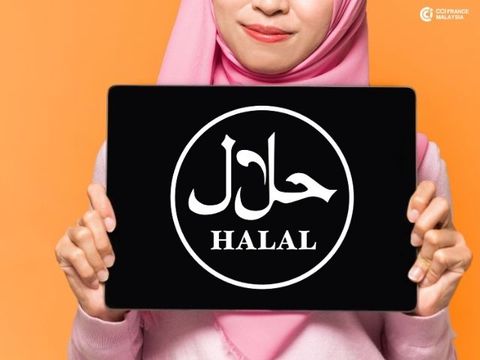Sectors & markets Agriculture - Agroalimentaire • Cosmétique - Bien-être - parfum • Finance - Assurance - Banque • Santé - médical - pharmaceutique
Malaysia Paves the Way to Tap Into the US$3 Trillion Halal Market

Malaysia has a distinctive edge in the halal segment. Already well-renowned for its halal food-related infrastructure, its non-food ecosystem is firmly being established with an eye to maintain its leadership position as a global halal hub. Malaysia also has a facilitative ecosystem of non-food categories, which is conducive for world’s MNCs to do business with or from Malaysia.
When we say ‘halal’, people will first think of food. The fact of the matter is, halal business encompasses much more than just food. It broadly includes Islamic finance, pharmaceuticals, cosmetics, health products, self-care products, medical devices, modest fashion, Islamic-themed media and recreation, as well as a whole range of service sector components.
According to the State of the Global Islamic Economy 2020/21 report published by DinarStandard in collaboration with Salaam Gateway, an estimated USD2.02 trillion was spent across the food, pharmaceutical, cosmetics, fashion, travel, and media and recreation sectors in 2019, reflecting a 3.2 percent year-on-year growth from 2018. Additionally, Islamic finance assets were estimated to have reached USD2.88 trillion in 2019.
With the rising awareness and spending on halal products globally, the demand for halal certification is seeing growth across the value chain, from source ingredients right up to finished goods. As the global halal industry grows, Malaysia continues its trajectory as a global leader in the Islamic economy ecosystem. Malaysia has once again, for the eighth consecutive year, clinched the overall lead in the Global Islamic Economy Indicator (GIEI), taking the top spot in the Halal Food, Islamic Finance, Pharma and Cosmetics, and Muslim-friendly Travel sector rankings.
Malaysia is in a position of strength to cement its position as a benchmark leader in the halal segment as we have in place the necessary policy frameworks, government support and infrastructure for the development of the halal industry. These encompass harmonising the halal certification process, promoting investment in halal activities, enhancing research and development (R&D), establishing halal parks and strengthening the institutional capacity of the organisations involved.
Government bodies particularly Ministry of International Trade and Industry (MITI), the Halal Development Corporation (HDC) , Department of Islamic Development (JAKIM), and InvestKL Corporation (InvestKL) are just a few of the many essential cogs in the wheel that are vital towards growing the halal industry and promoting Malaysia as a global halal hub to international investors.
Malaysia was ranked the fifth Asian country to make the top 10 best countries in the world to invest in or do business for 2020, according to CEOWORLD Magazine. While Malaysia has a growing range of local and multinational corporations (MNC) specialising in the halal food segment and in Islamic finance, a slew of non-food players has also found a firm footing here due to Malaysia’s clear and facilitative halal support and ecosystem. HDC is the custodian of Malaysia’s halal economy as it is also responsible for helping companies tap the halal market by setting up operations in the country’s 14 designated halal parks. Today, Malaysia’s halal parks are home to more than 60 multinational companies and 300 SMEs, among them companies like Kewpie, Rikevita and Yakult. More…
Read the full report of the MITI’s Recollective Global Edition, which highlights Malaysia's competitiveness as a trade and investment hub for the world. In this issue, the e-paper showcases Malaysia's strengths in halal, which is fast-emerging as a high-value industry.
Source: Ministry of International Trade & Industry Malasyia - www.miti.gov.my




